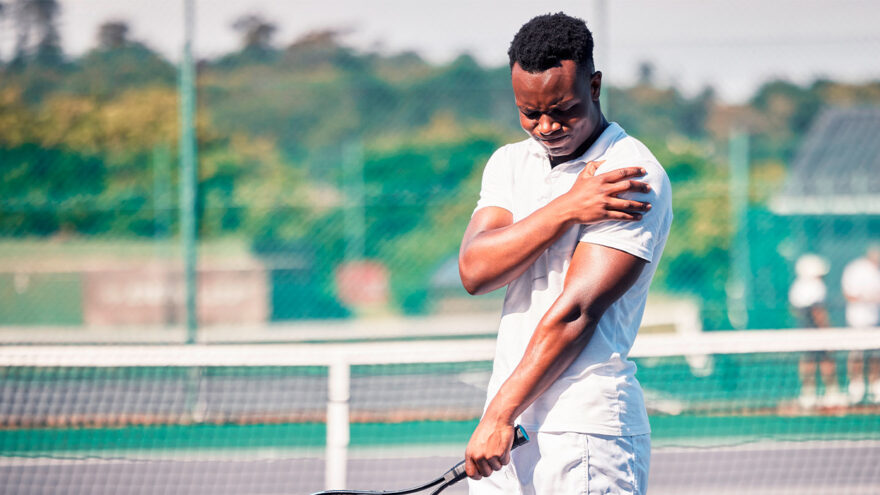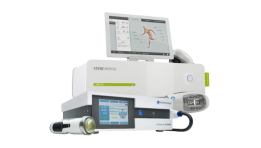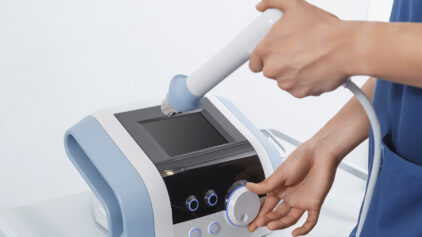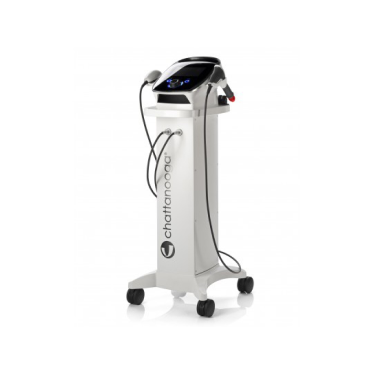As summer temperatures rise, so does participation in outdoor sports and athletic activities. This seasonal surge brings with it an increased risk of injuries that can sideline even the most dedicated athletes. Sprains, strains, tendinopathies, stress fractures, and muscle tears are among the most common summer sport injuries, affecting participants across activities from track and field to tennis, soccer, and recreational sports.
These injuries often result from inadequate warm-ups, improper training techniques, overexertion, or the simple misfortune of a wrong movement at the wrong time. For competitive athletes, the compressed summer season schedule leaves precious little room for extended recovery periods, making swift healing paramount to maintaining performance goals.
Traditional recovery approaches like rest, ice, and anti-inflammatories (RICE), while still valuable, may not address underlying tissue damage quickly enough for athletes facing tight competitive timelines. That’s where acoustic wave therapy (AWT) comes in. This non-invasive treatment targets the underlying tissue damage, not just the symptoms. For athletes wanting a faster, more complete recovery, and to stay active during rehab, AWT offers a powerful alternative.
Faster Healing and Enhanced Performance with AWT
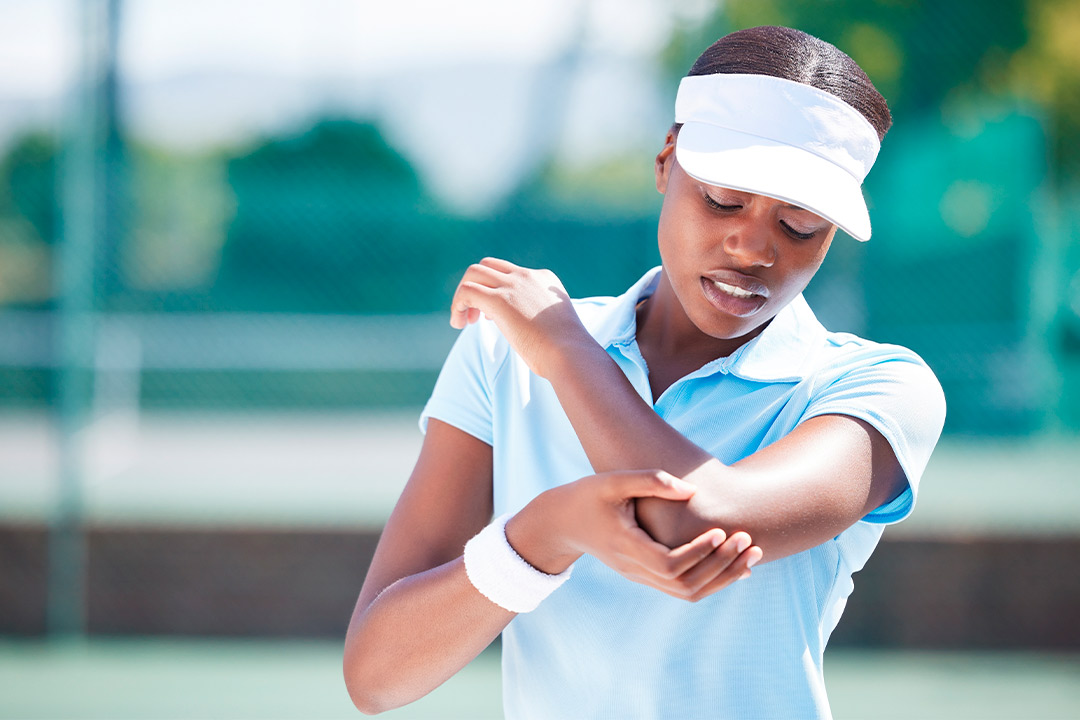
Acoustic wave therapy, also known as shockwave therapy, is a non-invasive treatment that uses high-energy sound waves to stimulate healing in injured tissues. Originally developed to break up kidney stones, this innovative technology has evolved into a powerful tool for treating musculoskeletal injuries that commonly occur during summer sports activities.
The science behind acoustic wave therapy is fascinating. It works by creating mechanical pressure waves that cause controlled microtrauma to the tissue, triggering the body’s natural healing response. These waves penetrate the skin and reach injured areas, where they initiate several key biological processes to accelerate healing:
- Increased blood flow that delivers oxygen and nutrients to the injury site
- Accelerated cell regeneration and collagen production
- Formation of new blood vessels (neovascularization)
- Breakdown of scar tissue and calcifications
- Modulation of the inflammatory response
Summer athletes often face tight timelines. They need to heal quickly and return to their sport without compromising long-term health. AWT speeds up this process while preserving athletic conditioning.
Benefits of Acoustic Wave Therapy
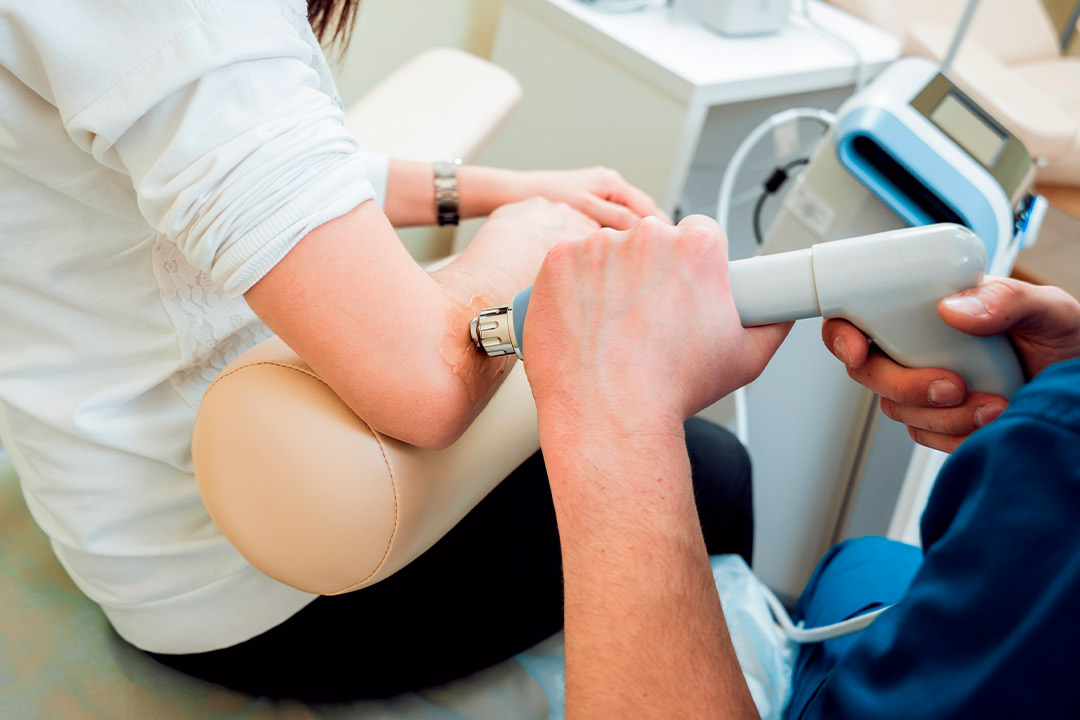
Acoustic wave therapy is transforming recovery from summer injuries. Its non-invasive nature, minimal side effects, and ability to accelerate healing without medications or surgery make it particularly attractive for athletes needing to quickly return to competition with these benefits:
- Accelerated recovery: Athletes report significantly shorter healing times.
- Ongoing activity: Non-invasive nature allows for continued light training.
- Enhanced post-recovery function: Improved strength and mobility upon return.
- No downtime: Treatments are quick and typically cause minimal discomfort.
In fact, over 81% of sports medicine professionals report high confidence in improved function and return-to-play after 30 days of AWT treatment.
Strengthening Tissues and Preventing Re-Injury
Healing is just one part of recovery. Athletes also need to prevent repeat injuries, especially during high-pressure summer seasons. Acoustic wave therapy helps by creating stronger, more resilient tissues.
How It Works
AWT uses targeted sound waves to stimulate:
- Cell regeneration
- Increased blood flow
- Collagen production
- Neovascularization (new blood vessel formation)
This creates denser, stronger connective tissues, which are better equipped to handle physical stress. Apart from the faster healing and athletic benefits as given in the table below, athletes note psychological benefits like increased trust in their bodies post-treatment, which is an advantage when returning to intense competition.
Benefits Beyond Healing
| AWT Effect | Athletic Benefit |
| Collagen stimulation | Stronger tendons and ligaments |
| Improved circulation | Faster nutrient delivery to injuries |
| Cellular repair | Long-term tissue health |
| Increased confidence | Reduced fear of re-injury |
Why Traditional RICE Protocol Falls Short
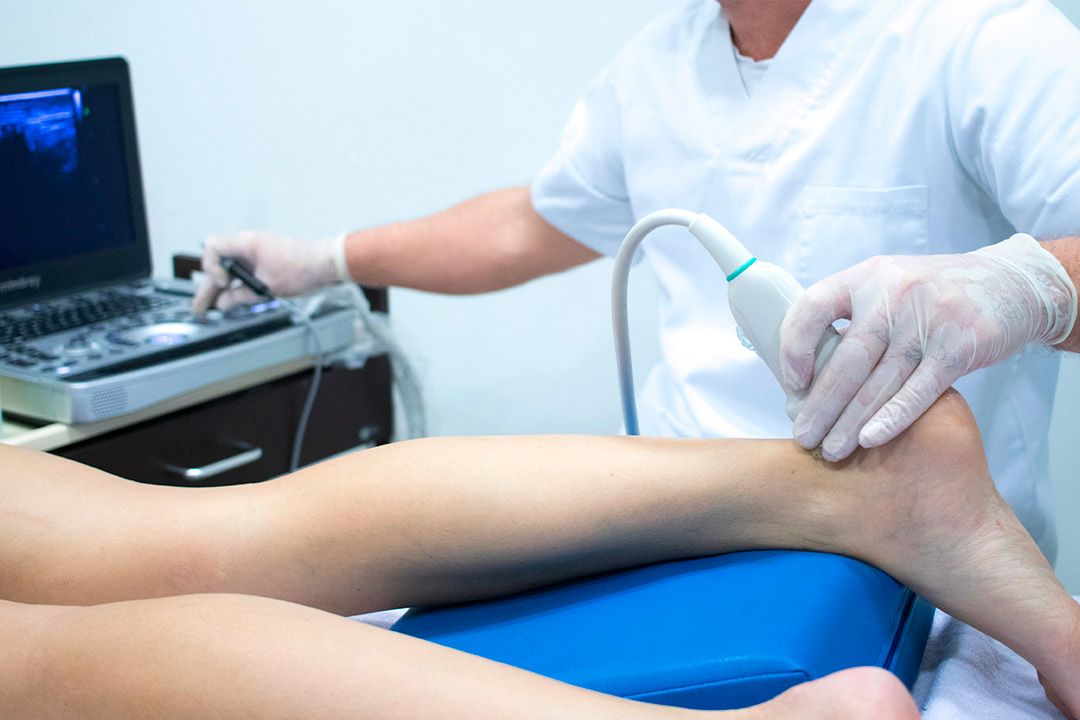
RICE has long been the go-to for managing sports injuries. It helps reduce swelling and pain, but its role is largely passive and symptom focused. In contrast, acoustic wave therapy actively stimulates tissue repair and regeneration. Research shows that AWT treatment provided significant clinical improvement in under two weeks for nearly 70% of patients and reduced pain medication needs by half.
Comparison: Traditional vs. Acoustic Wave Therapy
This table highlights treatment approaches and recovery timelines for injuries like tennis elbow and runner’s knee. It illustrates how newer therapies like AWT can accelerate healing and improve outcomes by directly stimulating tissue repair.
| Injury Type | Traditional Recovery | Acoustic Wave Therapy |
| Tennis Elbow (Lateral Epicondylitis) |
Rest, ice, NSAIDs; 6-12 weeks recovery; possible cortisone injections with risk of tissue damage | 3-5 sessions; targets source of pain; stimulates tissue regeneration; 50% faster healing; lower recurrence rate |
| Runner’s Knee (Patellofemoral Pain) |
Rest, physical therapy, braces; 4-8 weeks recovery time | Treatment beneath and around kneecap; low to medium intensity; significant pain reduction within 2 weeks |
| Achilles Tendinopathy | Rest, stretching, NSAIDs; months of recovery; possible surgical intervention | Stimulates healing at cellular level; promotes collagen production; restores function and reduces pain; 3-6 sessions typically needed |
This table is a comparison between RICE Protocol and Acoustic Wave Therapy across key recovery features (e.g., symptom relief, tissue repair, etc.) emphasizing how AWT outperforms traditional methods.

How to Integrate Acoustic Wave Therapy into a Summer Training Plan
Using AWT effectively requires strategic planning. Athletes can’t just rely on random treatments. They need a schedule that complements training and competition.
Recommendations
- Pre-competition treatment: 1 session 2–3 days before competition to enhance tissue readiness and minimize inflammation.
- Maintenance during training: 1–2 weekly sessions during peak periods help resolve micro-injuries early.
- Post-practice sessions: Portable AWT devices can be used immediately after workouts for recovery.
Integrating Acoustic Wave Therapy (AWT) into your weekly training schedule can play an essential role in both injury prevention and faster recovery. As illustrated in the line graph, strategically scheduled AWT sessions, placed on alternate training days, allow athletes to target emerging issues before they escalate into serious injuries. This proactive approach not only reduces inflammation and promotes tissue regeneration but also enhances recovery without disrupting the overall training rhythm. By aligning AWT with high-intensity days, athletes can relieve muscle stress, improve circulation, and reinforce tissue resilience, ensuring they stay at peak performance while minimizing the risk of re-injury.

Athletes who’ve embraced AWT report:
- Shorter time off the field
- Reduced need for pain medication
- Better flexibility and range of motion
- Fewer re-injuries during the season
A runner recovering from plantar fasciitis shared that AWT not only reduced his pain but also allowed him to continue cardio on a stationary bike, something that wouldn’t have been possible with other treatments.
Faster Recovery, Stronger Return
Shockwave Source’s advanced acoustic wave therapy can enhance your treatment and help your patients get back on the field faster, and in better shape than before. Learn more about our innovative recovery solutions visit Shockwave Source to learn more.

